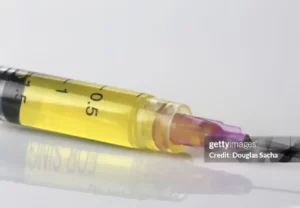Exploring global disparity in morphine access, identifying challenges, and suggesting a multifaceted approach for equitable distribution.

Morphine, a crucial medication for managing moderate to severe pain and severe breathlessness, plays a vital role across various clinical settings.
Despite its significance, global access to morphine is alarmingly inadequate, with pronounced disparities across different income levels and regions. This article examines the extent of this global variation, identifies barriers to access, and proposes a multifaceted approach to enhance safe and timely availability of morphine for medical use.
Disparities in global access: Data reveals a stark contrast in morphine consumption, with over 80% distributed to high-income countries in 2021.
The median estimated consumption per million people per day in high-income countries was 125.9 defined daily doses (DDD), compared to 24.9, 6.7, and 2.0 DDD in upper-middle, lower-middle, and low-income countries, respectively. WHO surveys further confirm that a significant portion of individuals in low-income and lower-middle-income countries do not receive morphine despite medical need.
Barriers to access: Multiple barriers hinder morphine access, including insufficient availability, particularly in lower-income countries. One in four respondents from low-income countries reported limited access to immediate formulation morphine when needed. Financial constraints exacerbate the situation, as patients may face impoverishing expenditures due to the need for various essential medicines and associated costs, compelling them to forgo morphine.
International regulation and co-ordination: International regulation of morphine and other opioids involves the United Nations Single Convention on Narcotic Drugs, 1961, and the Convention on Psychotropic Substances, 1971. However, poor co-ordination among involved parties can disrupt the supply chain, leading to delays in access for those in need.
Underlying factors: Governance structure, resource availability, capacity-building, legislation, and service provision are crucial factors influencing morphine access. Legislation and policies focused on preventing illicit use, coupled with unduly restrictive administrative requirements, hinder access. A stable financial resource and an adequately skilled workforce are essential determinants for safe access.
Areas for action: The WHO identifies several areas for action, including small-scale or state-wide programmes, regional manufacturing, establishing essential service packages, affordable pricing, hub-and-spoke distribution networks, and expanding access beyond cancer and HIV patients. Engagement with communities through education and health promotion is also vital to dispel misconceptions and
build trust.
Complementary strategies: These areas for action complement each other, emphasising the need for carefully planned policies and activities. For instance, small-scale programmes should include essential service packages, affordable pricing, and access for non-cancer patients. Governments must collaborate with stakeholders to streamline procurement processes, addressing inefficiencies in the supply chain.
CONCLUSION
Addressing the global disparity in morphine access requires a comprehensive and co-ordinated effort. Health and human rights should be central to policies aimed at improving access. Implementing the proposed strategies can alleviate the suffering associated with inadequate morphine availability, ensuring a more equitable distribution of this essential medication worldwide.
Source: Left behind in pain: extent and causes of global variations in access to morphine for medical use and actions to improve safe access. Geneva:
World Health Organization; 2023. Licence: CC BY-NC-SA 3.0 IGO.









